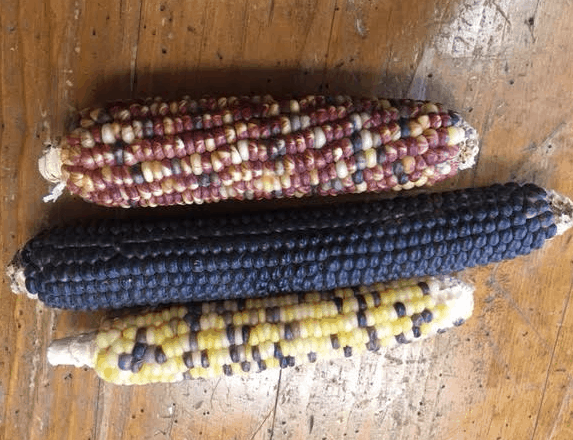by Amanda Mather
Corn, or maize, began it’s domesticated life in South Central Mexico about 10,000 years ago. Some of the earliest known examples of corn in the world come from the Mexican state of Oaxaca and you can go visit the cave from whence it came yourself. It’s called Guilá Naquitz Cave and it’s also one of the first places we see the domestication of beans and squash as well! Man what would we do without that cave? No pumpkin pie or Fritos! I shudder at the mere thought…
It is most likely that maize came from the wild plant teosinte, and because us humans don’t ever seem to be able to leave anything alone, especially if edible, we spent generations breeding it from a small little tiny grass looking thing into the big ol’ maize we know and eat with gusto.
Well, like anything that tastes pretty good and is calorie packed, it spread quickly, and by about 5,600 years ago corn had made it’s way up here to New Mexico. Bat Cave in Catron County is where we find the earliest evidence of corn domestication and consumption in New Mexico. And get this you guys, that corn they found in Bat Cave was popped corn, making it one of the earliest examples of popcorn in the world. Turns out New Mexican food was always good.
Corn continued to be the lifeblood of Pueblo peoples here in the Southwest for thousands of years. This is reflected in the religion, art, and cultural connection of Pueblo people to this very important plant up to today and no doubt into the forever future.
After European contact, corn spread all over the world and was destined to become one of the biggest baddest staple crops there ever was. Corn is the biggest domestic crop grown in the United States to this day, and is by weight, the largest crop grown in the world. This is because not only does corn make Fritos (which may be it’s most important function if you ask me) it also makes corn syrup, binders, oil, alcohol, animal feed, make-up, fuel, I mean… I could go on-and-on boring you till spring but I’ll stop. You get the point… maize rules.


